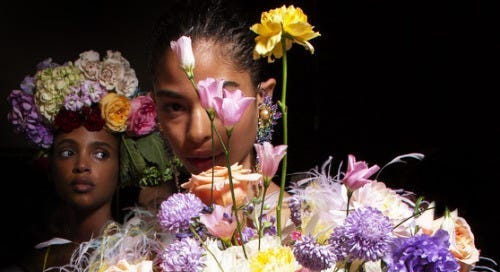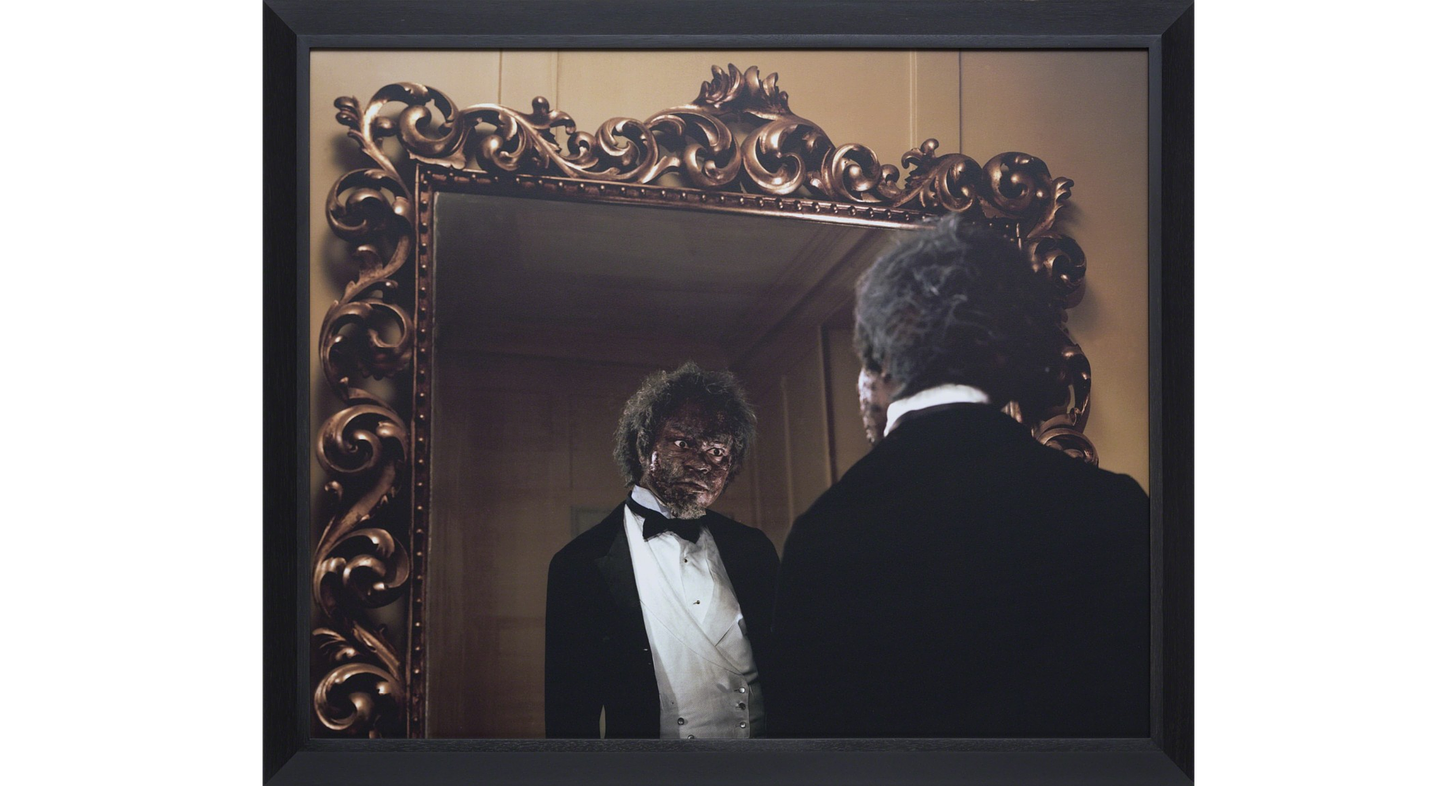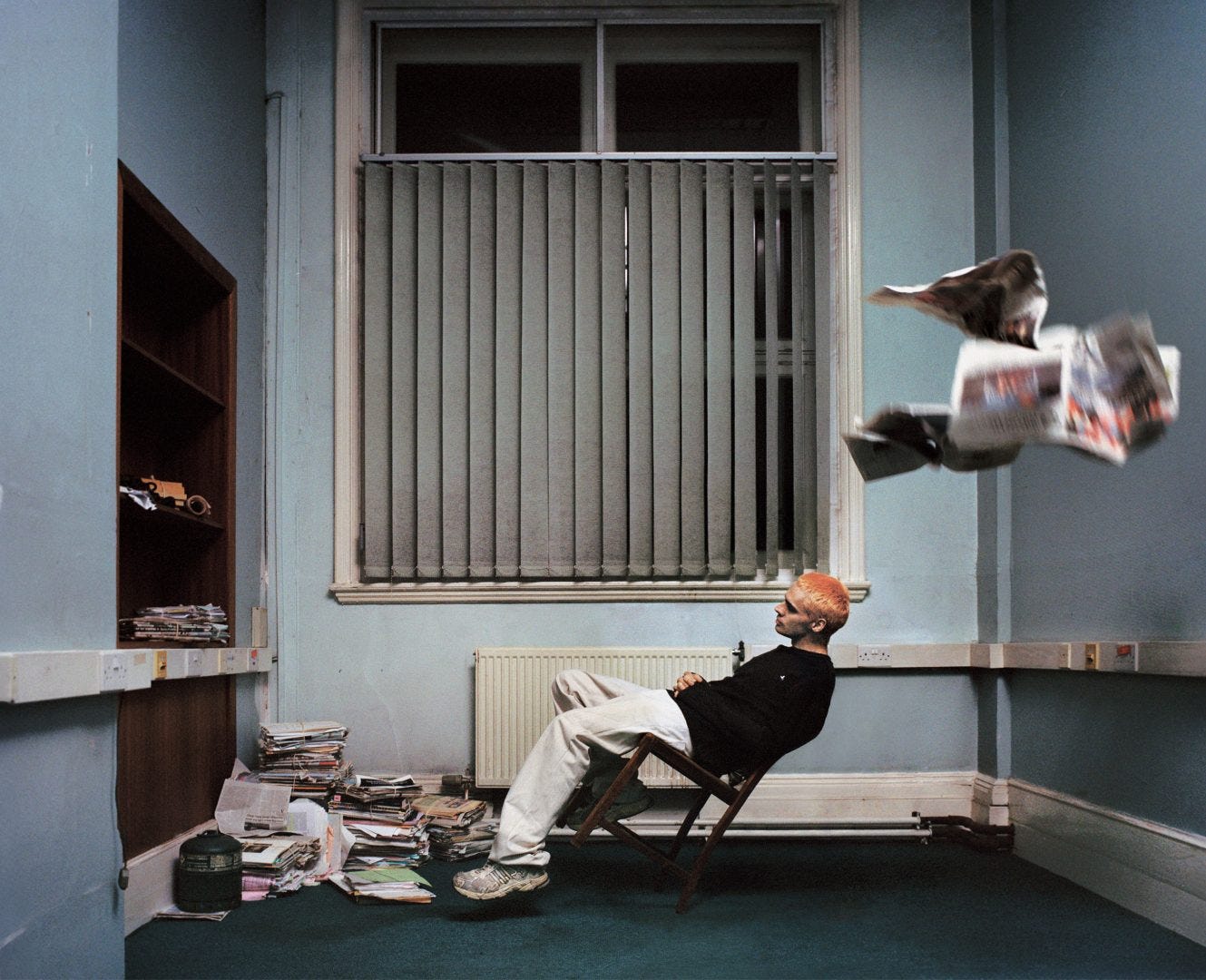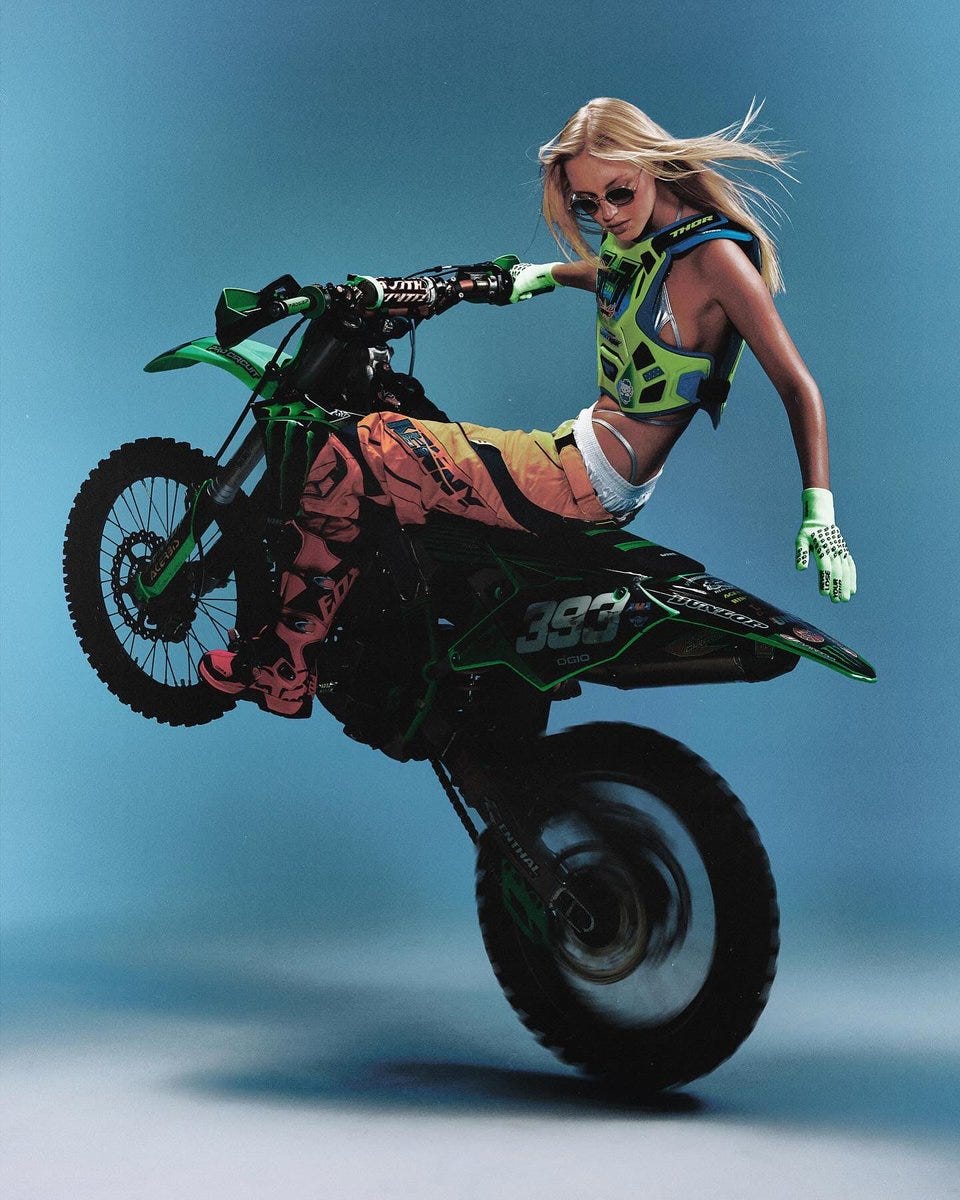A couple of weeks ago, I spent my birthday in Paris. I was in town for men’s fashion week – working on a project with a designer who was presenting – and found myself dropped into the belly of an industry energized by beauty and youth culture. As the days crept towards my birthday, I was reminded of my age. Models who had their first birthday a full decade after I was born frolicked around the city and, as I attended fittings and pulled together outfits for last-minute party invites, I found myself asking a question that I have never asked before: Am I too old to be wearing this?
The tastes and modalities of youth have a mechanizing force in popular culture. As of publication, half of the Billboard Top 10 is occupied by Gen Z artists. Three of the top Formula One drivers, and the most followed on Instagram, are Zoomers too. The film, television, and book industries carve out awards for young artists, sprinting to crown the next voice of a generation. The media economy stokes this further, with magazines and newsletters translating youth culture to the masses and the annual arrival of Forbes 30 Under 30. There is cultural currency in being young – be it of actual age or the expression of it. Recognizing this, some friends freeze their faces and travel to Turkey to re-pot their scalps. Anything to slow down time and sip from the fountain of youth.
I’m lucky. Looking at my parents, I can confirm that ‘Black doesn’t crack.’ And in Paris, everyone remarks that the French ‘age gracefully.’ But, during fashion week, when the environment is preoccupied with staying current, I’m interested in what ‘aging gracefully’ means in the cultural context. Is it possible to age gracefully and still be ‘on trend?’ And at what point does chasing the ‘fountain of youth’ become tacky?
This year, a handful of once-treasured talent have faced humiliation for their inability to acclimatize to a culture that differs from the one that brought them into power. Will Smith attempted to regain goodwill by dusting off the Bad Boys franchise to mix reviews. The multi-hyphenate Jennifer Lopez released the lowest charting album of her career after heavy criticism of her self-funded, cringe-inducing music movie. Katy Perry’s latest single has been lambasted for its manufactured attempt to recapture the mainstream and copying more innovative pop stars. I even side-eyed Drake and Kendrick going back and forth at their big age, thinking that hip hop, and rap beef, is a young person’s sport. And Justin Timberlake’s world tour was almost ruined. Awww.
It’s concerning to see stars embarrass themselves as they try to regurgitate the success of yesteryear, often at the expense of true innovation. Katy Perry returning to the disgraced producer of her record-breaking Teenage Dream doesn’t only signal a lack of cultural awareness but something more damaging as an artist: she’s run out of ideas. I believe, and hope, that there is room for artists to age and still produce meaningful work but what these attempts miss is authenticity. As these talents age, their fear supersedes their drive to produce honest art. They appear desperate, tap dancing for attention and clicks, and the culture – with our bullshit meter acutely tuned – gets the ick.
You will never ever hear me speak poorly about Julia Roberts and yet my favourite movies of hers are from over twenty years ago. Zadie Smith’s best book remains her first. Rihanna not releasing another album makes more sense to me every day, her catalogue aging like fine French wine.
I don’t need another season of Big Little Lies or Euphoria despite the showrunners plotting to extend each series. To me, they hit the moment they were released and I struggle to believe that the creators could capture the same electricity today. The culture has moved on. And I think that’s okay.
We often lazily categorize art as being ‘ahead of its time’ and therefore good. When a movie or book has ‘aged poorly,’ it’s seen as bad. Why is this? Making something that reflects the context of its period is extremely valuable. These artifacts, even though not as effective at capturing today’s impossibly quick climate, serve as important pieces of work that archive a sentiment, a feeling, a politic, a culture. “You exist in the context of all in which you live and what came before you” and things like that.
This doesn’t mean that it’s impossible to age gracefully and stay current. It’s just very hard. Beyoncé – with respect to her musical contributions – has been able to achieve this, each new project addressing the realities of her present life. Although I’d gladly take another ‘Crazy In Love,’ that’s not her life anymore. She’s shouldered through motherhood, marriage, a miscarriage, and infidelity and reflected it all within her art. As she’s aged, she’s shed layers, becoming more vulnerable than her debut. Beyoncé may collaborate with new producers and songwriters, as evidenced on COWBOY CARTER, but the narrative continues to reflect her life journey. She is her life project and muse, not the audience or the latest generation. Showing up with different stories with innovative ways to tell them, and marrying the current culture with new personal truths is how you outlast. I feel similar about Fiona Apple, Sebastián Lelio, Julianne Moore, Cate Blanchett, Michael Haneke, Pat McGrath, Vampire Weekend, Isabelle Huppert, and Yohji Yamamoto. All could write a thesis on how you get better with age.
On my flight home from Paris, I breezed through a translation of French writer Hervé Guilbert’s My Manservant and Me. The novella was unnerving, depicting the sadistic tension between a dying, wealthy author and a live-in valet that slowly controls every aspect of the author’s life. A homoerotic Parasite. It’s the last book published in Guilbert’s lifetime and is saturated with provocations of the aging, sickness, and pity expected at the end of one’s life. It’s also very funny. Against the backdrop of the youth possessed by the manservant, the aging narrator's helplessness grows. The narrator hopes that his investment in the young servant will provide him an easy transition to death, the privilege to age gracefully, and is met with something else entirely.
The book’s forward opens with a question from Guilbert:
“How to last?... How to last, that is the question, since one damages oneself into one’s own work.”
This inquiry is synonymous with the question of how to age gracefully. If lasting is your only goal, you’re not going to make it. This tireless commitment will only age you further, make your frown marks deeper and cultural blindspots more noticeable. Petit damages. But if you put truth into your work, into your life, into whatever silly little outfit you decide to wear to that fashion week party, maybe you can last. And if you create work that reflects the reality of your present instead of chasing the past, then maybe you’ll live forever.
LOOSEY is a bi-weekly newsletter about culture, technology, and the way we live. If this is something you like, consider subscribing and sharing. Let’s be friends on Instagram.











How incredibly well-written. I feel lucky to have stumbled across this. Sometimes we try so hard to be timeless we forget the value of being a product of our time—you captured the sentiment perfectly.
planning to age in a “feral bog witch” kind of way (positive)